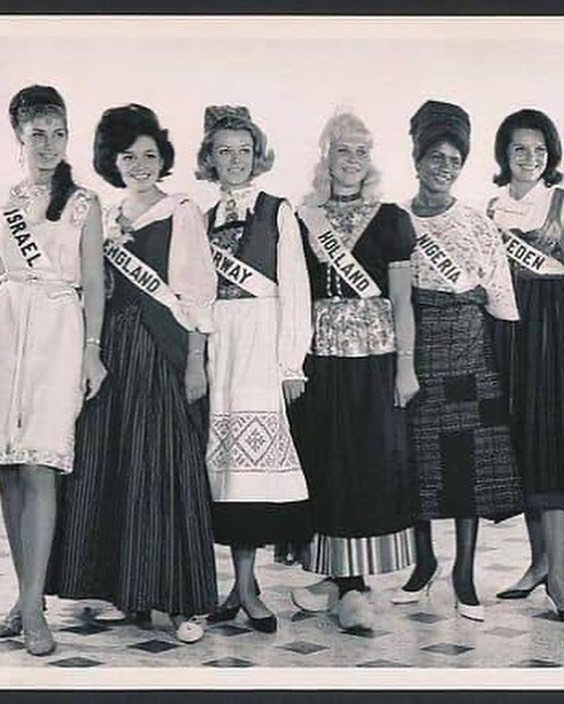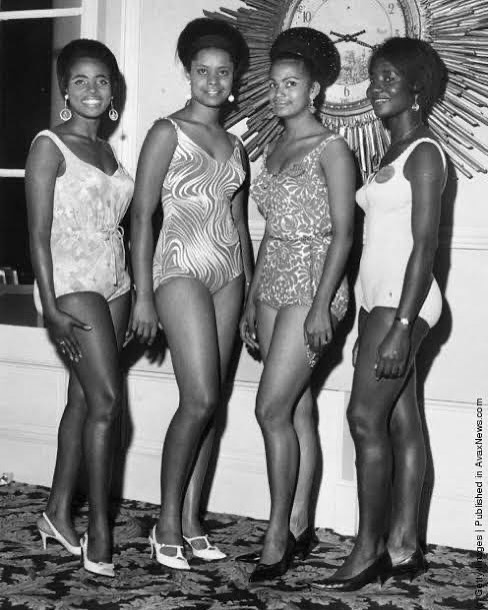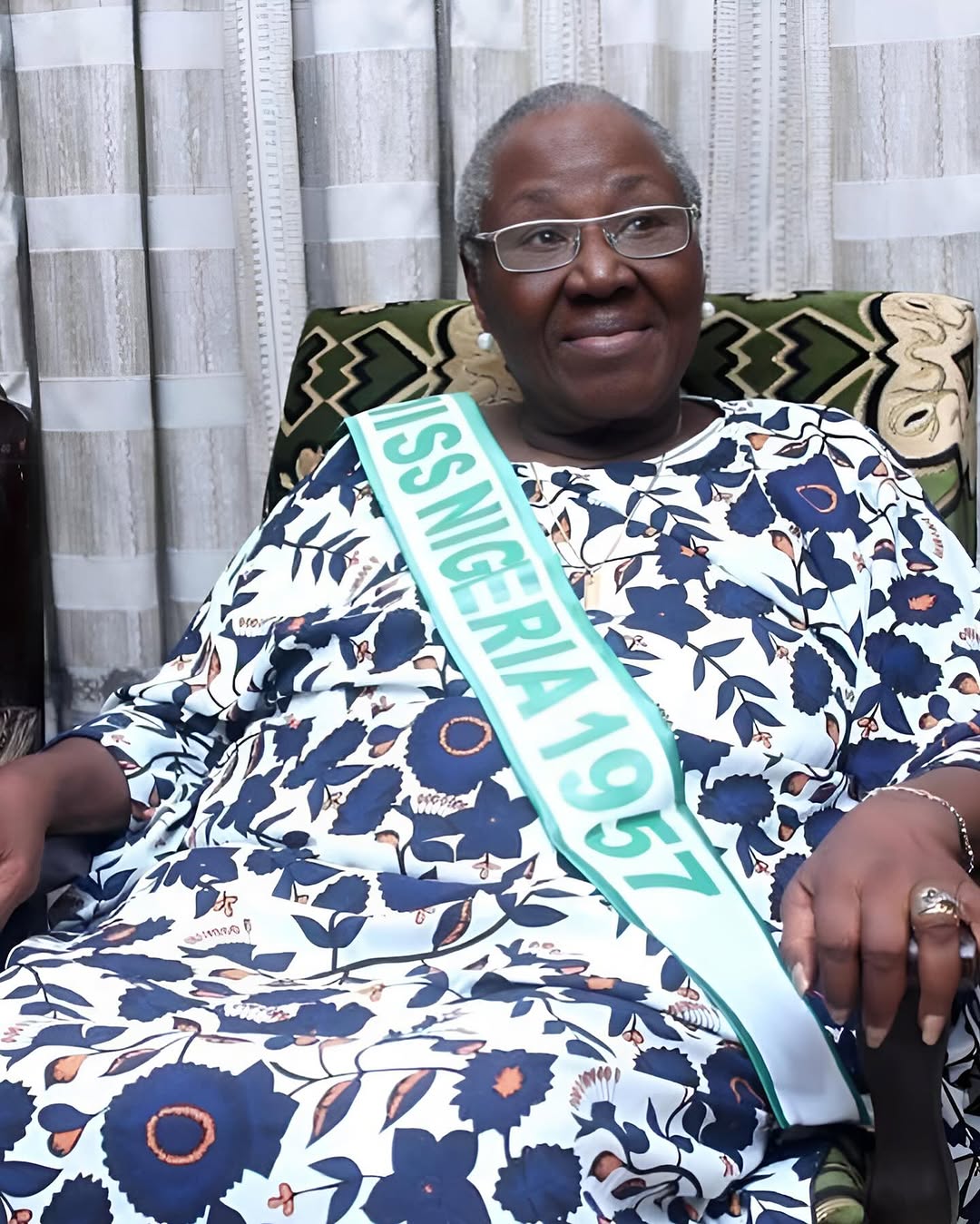In 1957, when the world was still finding its footing after the tumults of war and colonial transitions, a young Nigerian woman stood quietly at the crossroads of tradition and modernity. Her name was Grace Atinuke Oyelude, and she would soon become a living testament to the idea that beauty is most powerful when wedded to purpose.

Grace’s journey to history began almost by chance her brother, envisioning a larger destiny for her, submitted her photograph to the Daily Times Miss Nigeria contest without her knowledge. At the time, she was working diligently at the United Africa Company in Kano, immersed in the routines of corporate life.
When Grace arrived in Lagos for the finals, she did something unexpected: she chose to wear traditional attire, a quiet act of cultural defiance that captured the imagination of the judges. It wasn’t just about looking beautiful it was about standing rooted in heritage, signaling to the nation that Nigerian identity was something to be proud of, not to be disguised.

And so, at that singular moment, Grace Atinuke Oyelude became Nigeria’s very first Miss Nigeria.
Her victory was more than a crown. It came with a £200 prize, a sum that would soon become seed capital for something far more impactful than fame. While many might have rested in the glow of celebrity, Grace charted a different course entirely. She boarded a ship bound for the United Kingdom, determined to train as a nurse.
By 1961, she had become a registered nurse, and within a year, a qualified midwife. Where others might have seen pageantry as an endpoint, Grace used it as a launchpad. She pursued additional credentials in nursing management and hospital administration, embodying a philosophy that knowledge is the true ornament of any crown.
Upon her return to Nigeria, Grace took her place on the front lines of public health. At Kaduna General Hospital, she became a linchpin of care and competence. During the Nigerian Civil War, when conflict tore through communities, she led medical teams with steady hands and an unbreakable spirit. Later, as Senior Matron at Ahmadu Bello University Teaching Hospital, she shaped a generation of health professionals, proving that leadership isn’t a title, it’s an ethic.
 Grace did not stop there. She chaired the Kwara State Health Management Board and served as an external examiner, helping shape policies that would touch countless lives. In recognition of her contributions, she was awarded the Florence Nightingale Medal, the highest international distinction a nurse can receive. Chieftaincy titles followed, affirming her standing not only in professional circles but in the heart of her community.
Grace did not stop there. She chaired the Kwara State Health Management Board and served as an external examiner, helping shape policies that would touch countless lives. In recognition of her contributions, she was awarded the Florence Nightingale Medal, the highest international distinction a nurse can receive. Chieftaincy titles followed, affirming her standing not only in professional circles but in the heart of her community.
Even as she aged gracefully into her 80s, her legacy never dimmed. In 2015, the Miss Nigeria organization honored her as the matriarch of their tradition, a living bridge between the dreams of the past and the aspirations of the present.

Today, as we reflect on Grace Atinuke Oyelude’s story, we are reminded that beauty without purpose is fleeting, but beauty rooted in service becomes a legacy. She showed us that a crown can be both a symbol and a responsibility, a reminder to elevate not only ourselves but the people around us.
At 86, she remained an icon of grace, resilience, and vision. She taught generations of Nigerian women that it is possible to cherish tradition while forging new paths and that when opportunity knocks, it is best answered with courage, intellect, and a heart committed to others.
May her story inspire you to pursue your ambitions with the same quiet conviction and to remember that true influence lies not in titles, but in the lives you touch along the way.




